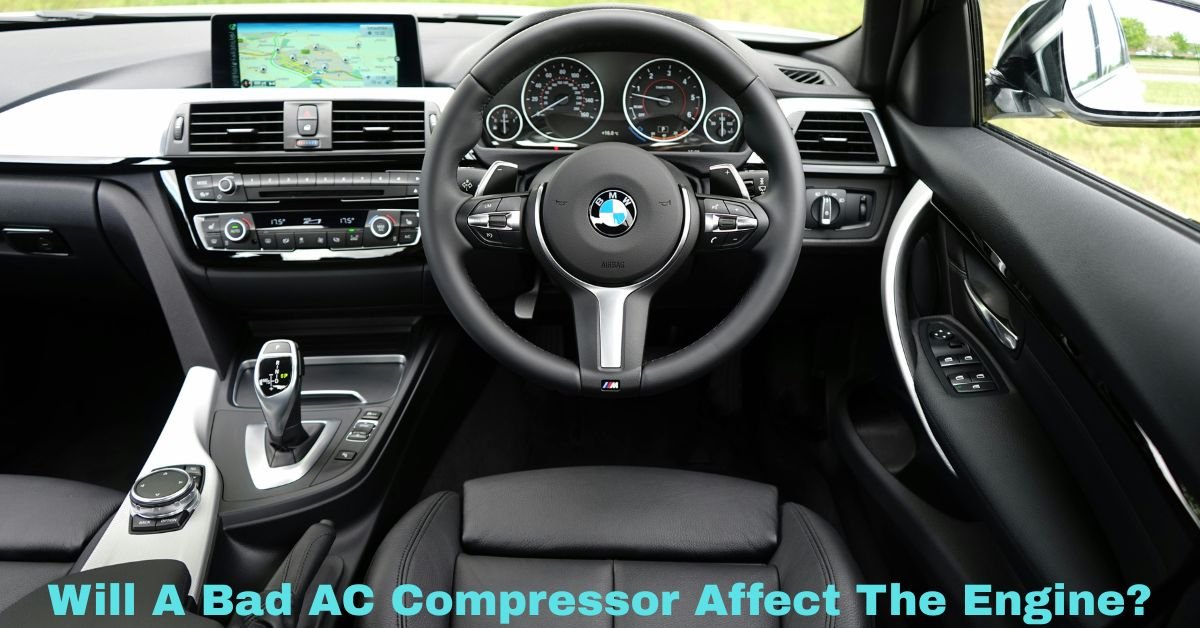When the summer heat hits, a functioning air conditioning system becomes more than just a luxury—it feels like a necessity. But what happens when your vehicle’s AC stops working? More specifically, can a bad AC compressor affect the engine? The short answer is: yes, it can—but not always in the way you might think. Let’s dive into the details.
Will a Bad AC Compressor Affect the Engine?
Understanding the AC Compressor
The AC compressor is one of the main components in your vehicle’s air conditioning system. It facilitates heat exchange and cools the air within your vehicle by compressing and moving refrigerant throughout the system. It’s driven by the engine through a serpentine belt, meaning its operation is directly tied to engine performance.
While the AC system is technically separate from the engine’s core functions—like combustion, transmission, or drivetrain—it can still have an indirect but noticeable impact on engine behavior, especially when something goes wrong.
How a Bad AC Compressor Can Affect the Engine
A failing AC compressor can manifest in several ways, and depending on the nature of the issue, it can strain the engine or even lead to damage in extreme cases.
1. Increased Engine Load
The compressor uses engine power when the air conditioner is turned on. This is why your RPM slightly increases when you activate the air conditioning. If the compressor is failing or seizing up, it can put excessive drag on the engine, forcing it to work harder than normal. This can result in:
- Reduced fuel efficiency
- Sluggish acceleration
- Overheating, in extreme cases
In vehicles with smaller engines, the impact is even more noticeable. Engine performance can be considerably lowered if the compressor is binding.
2. Serpentine Belt Damage or Failure
The AC compressor is driven by the serpentine belt, which also powers essential engine components like the alternator, power steering pump, and water pump. The belt may break or come loose if the compressor pulley or bearing fails. This could result in:
- Loss of power steering
- Overheating due to water pump failure
- Loss of electrical charging from the alternator
- Complete engine shutdown
In this case, a bad AC compressor isn’t just an inconvenience—it becomes a mechanical hazard.
Must Read: 4 Best Guides Can You Fit 3 Car Seats In A Toyota Rav4?

3. Noises and Vibrations
A failing compressor might make grinding or squealing noises, which are often due to internal component failure or a bad bearing. These sounds can cause concern and distract drivers, and in some cases, vibrations can even be felt throughout the vehicle. While this may not immediately damage the engine, it’s a sign that your compressor is in distress and could soon affect the drive belt or other engine-driven components.
4. Engine Stalling
In some cases, a seized compressor can stall the engine when the AC is turned on. The additional resistance can be too much for the engine to handle, particularly if the vehicle is already idling at low RPMs. This is more common in older cars or vehicles with smaller engines.
What Should You Do?
If you suspect your AC compressor is bad, don’t ignore it. Common symptoms include:
- AC not blowing cold air
- Unusual noises when the AC is on
- Visible belt damage
- Engine running rough when AC is engaged
Have your vehicle inspected by a certified mechanic. Sometimes, the compressor can be bypassed with an AC delete pulley if you don’t plan to repair the air conditioning. However, this is a temporary workaround and not ideal for long-term use, especially in hot climates.
Conclusion
While a bad AC compressor won’t destroy your engine outright, it can certainly affect its performance and lead to costly repairs if left unchecked. Because it’s driven by the same belt system that powers vital engine components, any issue with the compressor can quickly escalate into a bigger problem.
If your AC is acting up or you hear strange noises when you turn it on, it’s best to get it checked sooner rather than later. Taking action early can save you money, prevent engine strain, and keep you cool—literally and figuratively—on the road.